Sometimes the most remarkable careers begin with unexpected detours.
Trena Marsal's story starts in a small Tennessee town, where she grew up surrounded by a family of educators, ministers, and managers. After graduating from Murray State University in Kentucky, she followed family ties to Colorado—a move that would reshape her entire professional trajectory.
"Most of my family is in education," Marsal says. Her sister was already making her mark as a principal in Denver Public Schools, but Marsal initially took a different path.
She started as an environmental specialist, subcontracting across multiple Western states. The work took her to Wyoming, Colorado, and beyond—but it also meant she was rarely home. It was through this environmental work that fate intervened: projects at DPS brought her into contact with district staff.
When a district official mentioned a four-year temporary role as an environmental specialist, Marsal saw an opportunity for stability and a chance to work with kids, something she'd always loved.
That "temporary" position? It's now stretched into an incredible 26-year career.
Marsal began managing small projects, then found herself creating district-wide standards that would shape how DPS designed and operated its buildings. She was thinking about sustainable practices, "even back when we weren't really thinking about it," developing protocols for everything from boilers and chillers to carpet selection.
Today, Marsal serves as Chief Operating Officer for DPS—and she's making history in the role. She's not only the first woman to hold this position, but also the first Black woman to serve as COO for the district.
A speaker at the upcoming K12 Facilities Forum, we sat down with Marsal to get a deeper understanding of DPS’s standard-setting sustainability initiatives.
This transcript has been edited for length and clarity.
How did you engage with the community when developing your sustainability plan, and what advice would you give other K12 operations leaders looking to do the same?
Marsal: Denver Public Schools (DPS) had been pursuing sustainability initiatives for over a decade before officially issuing our RFP for a comprehensive sustainability plan.
Thirty students from eight schools mobilized into "DPS Students for Climate Action," urging leadership to take urgent climate action steps. Our board and superintendent responded by unanimously passing a climate action policy on Earth Day 2022.
Our call to action declared that DPS shall be "a national leader in establishing an organizational culture anchored in sustainability, climate action and environmental justice." This positioned us out front and embedded sustainability not just in our organization, but throughout our community.
Over 18 months, we included students, staff, faculty, parents, and community members in focus groups and meetings to develop our framework with six pillars: built environment, natural resource management, transportation, wellness, engagement and environmental justice, and career and curriculum.
As a school district, we had to embed sustainability into teaching and learning—making it part of everyday educational strategies for both students and adults. We keep the community engaged through visually appealing, data-rich websites, annual action and accountability reports, and social media storytelling that showcases our implementation progress.
What strategies have the best ROI for a district looking to increase sustainability in its facilities?
As a large district with 16 million square feet of facilities (over 200 buildings) across 1,600 acres, we focused on our building infrastructure for the best return on investment.
We've embedded energy efficiency throughout the district by working with all facility staff on HVAC scheduling, enforcing strict temperature setpoints (allowing only 1-2 degrees of variation), and transitioning to LEDs throughout our buildings.
We've prioritized smart controllers, irrigation repairs and water conservation measures across our extensive grounds and also collaborated with vendors who invest their time and expertise. That’s been critical to carrying out this work effectively.
We're also implementing fault detection diagnostics to be more proactive about repairs and strategically focus our staff's time where it's needed most.
We currently have 3 existing electric buses and through a grant will receive 25 more over the next year. This should have a great ROI with increasing fuel cost.
How do you get buy-in from your departments to best achieve your sustainability goals?
We had support from our board and superintendent with a strong, compelling vision communicated to all staff. But you have to help staff understand the impact on them personally.
I've intervened in conversations where maintenance and sustainability teams clashed—like when sustainability wanted unoccupied mode during holidays while maintenance worried about pipes freezing at negative temperatures. You have to sit down, talk, and find common ground where both sides understand each other's concerns.
We expanded sustainability into CTE courses because we all work here for kids. If that's truly our number one priority, staff will put more effort into supporting initiatives that benefit students.
Establish great relationships with individuals, listen to their objections, and keep all solution avenues open. Look for departments that already have sustainability efforts so they can see common ground and tie to the district’s existing strategic plan.
Coming from the top down, we've shared Denver Public Schools' success stories nationally. Other districts and organizations want to be part of successful stories—if you invest your time, you're part of how we're supporting kids and increasing sustainability efforts. Having students highlight their climate activism helps support our efforts.
In what ways have you incorporated your sustainability initiatives into curricula?
We explored curricular connections across academic departments to elevate units with climate literacy principles. Hundreds of students just graduated with this seal on their diplomas, plus a medal of honor—something they can be proud of for life.
We added renewable energy, water quality management, and horticulture programs, plus climate and sustainability-oriented courses.
Since sustainability spans the built environment, renewables, gardens, and curriculum, it's easy to get distracted. Having an individual within sustainability that is focused specifically on curriculum ensures we stay on task.
We've developed a solar energy curriculum with various partners and even the City and County of Denver who've provided grant funding and presentations.
Our graduates enter the workforce with sustainability expertise and leadership skills from their activism. Even without college degrees, they have content knowledge and skills for intermediate green jobs.
Through our "Sustain Ed" program, gardens are built into curriculum while engaging the community in maintenance. We operate farm-to-table programs, serving fresh produce in our school kitchens. Our goal is 100% of schools having at least one sustainability project-based learning opportunity.
What are some aspects of your sustainability initiatives that have surprised you with their positive impact?
External support exceeded expectations, which we were very happy to see. Our partnership with the city and county of Denver to award climate champions and provide funding to students and staff has allowed us to grow sustainability engagement beyond what I ever anticipated.
The Seal of Climate Literacy was a major achievement. Having this embedded within academic core curriculum was a great feat—171 students across 12 schools received the seal.
Leadership buy-in was also surprisingly strong. I expected some pushback on program expansion since everyone's busy, but executive leadership has been incredibly supportive and advocates for the program. Everyone's just on board and excited about it.
Posted by
Join us at the K12 Facilities Forum!
The community for district and facilities leaders
Nov 8-10, 2026 | San Antonio, TX



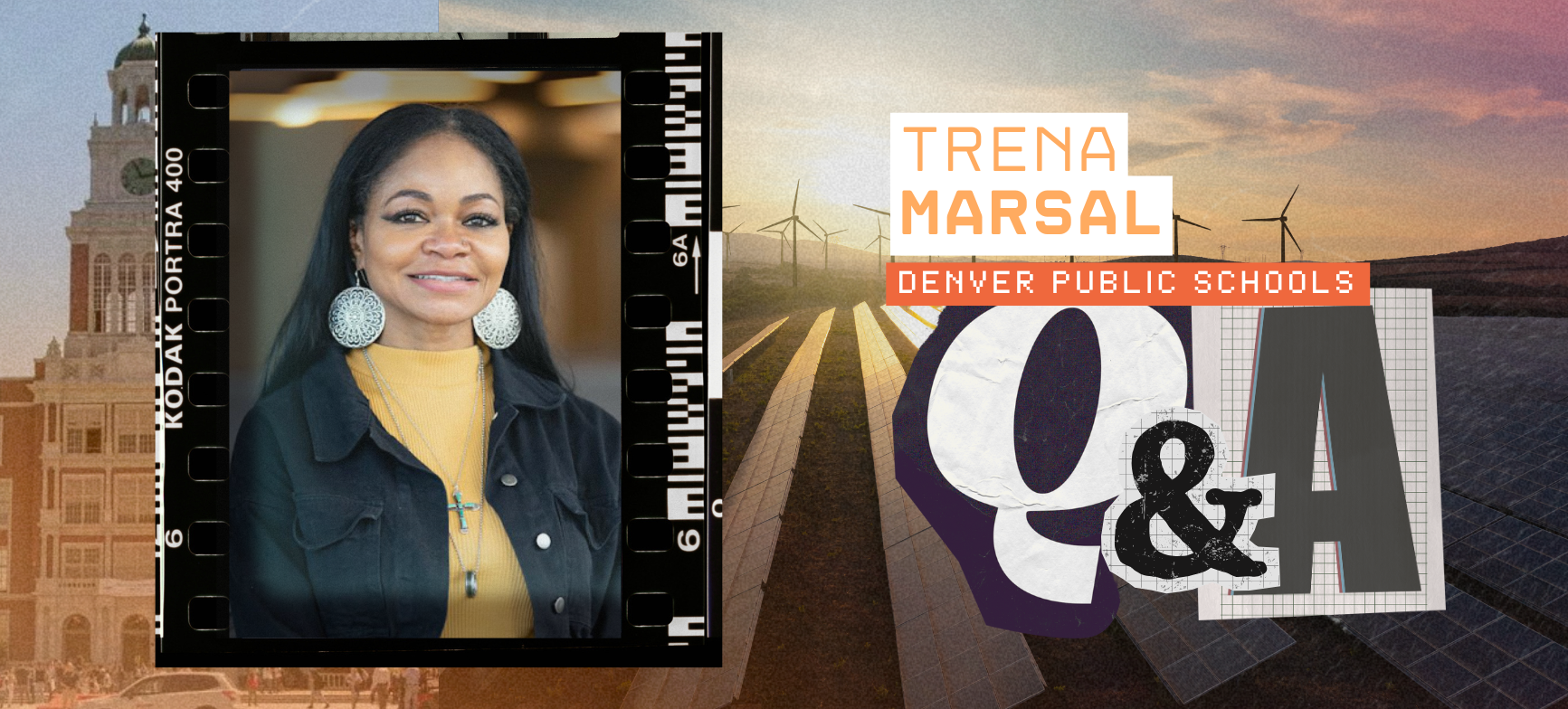

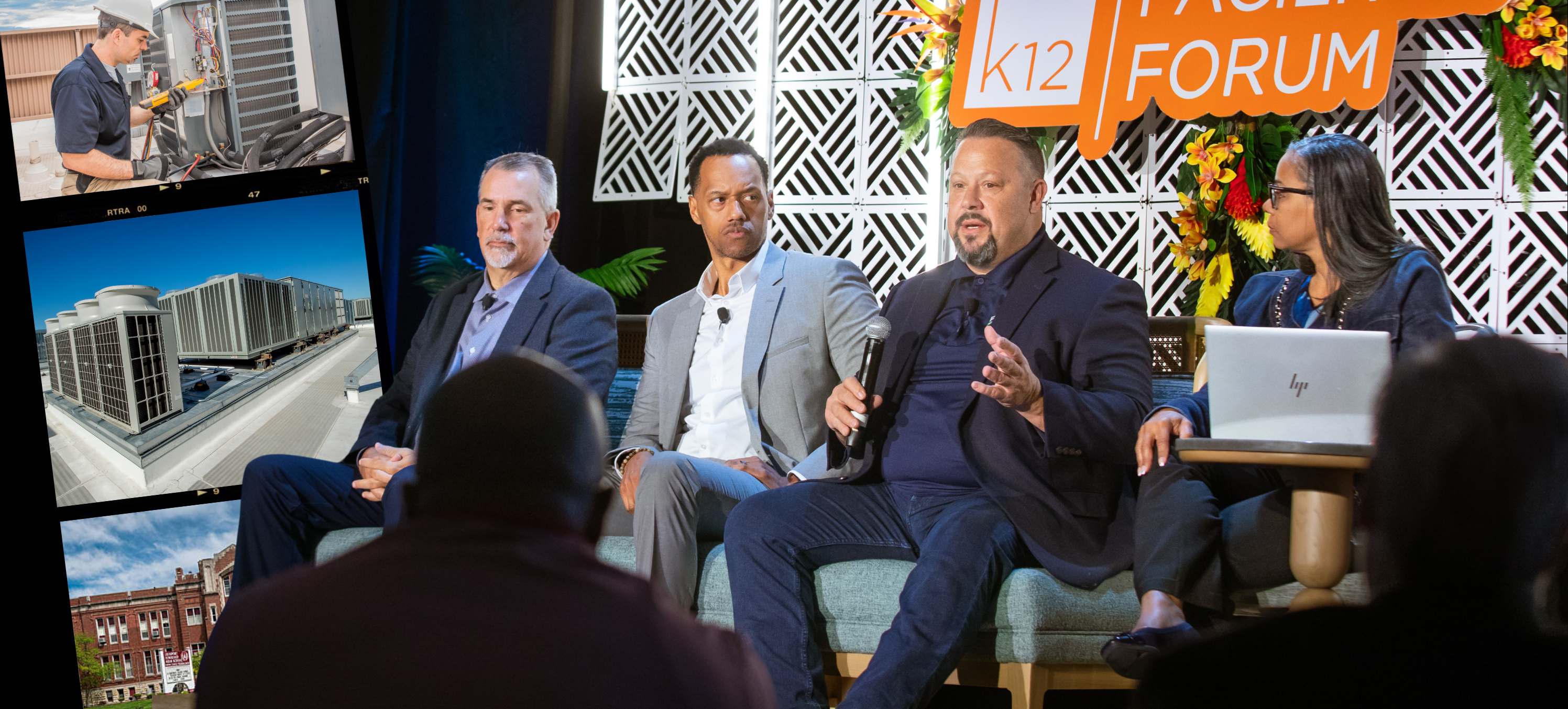
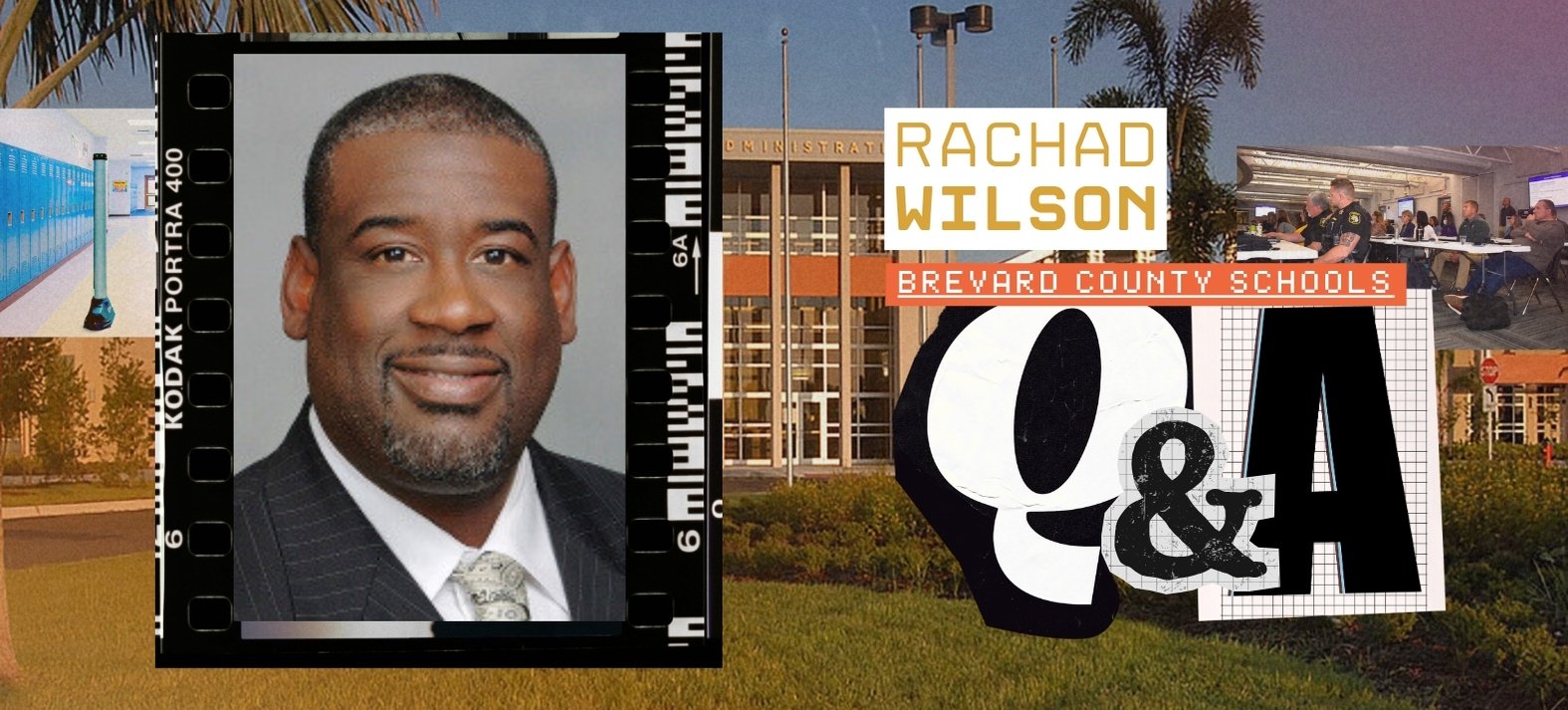
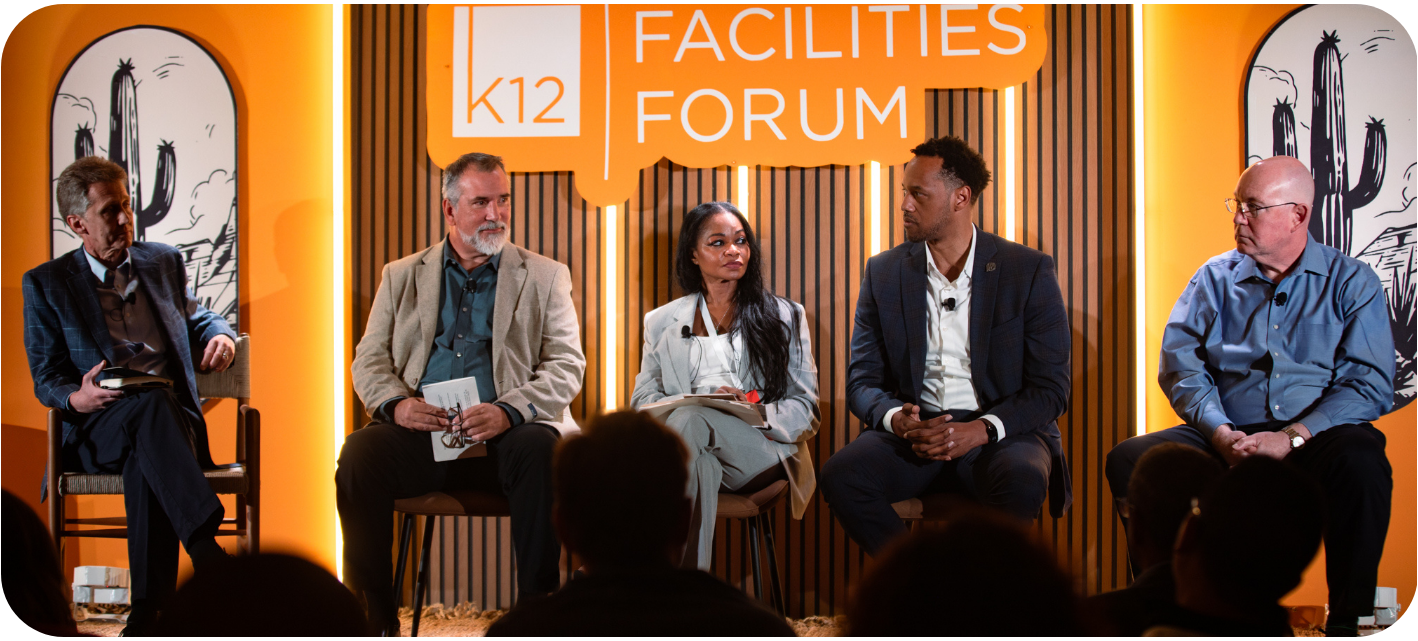
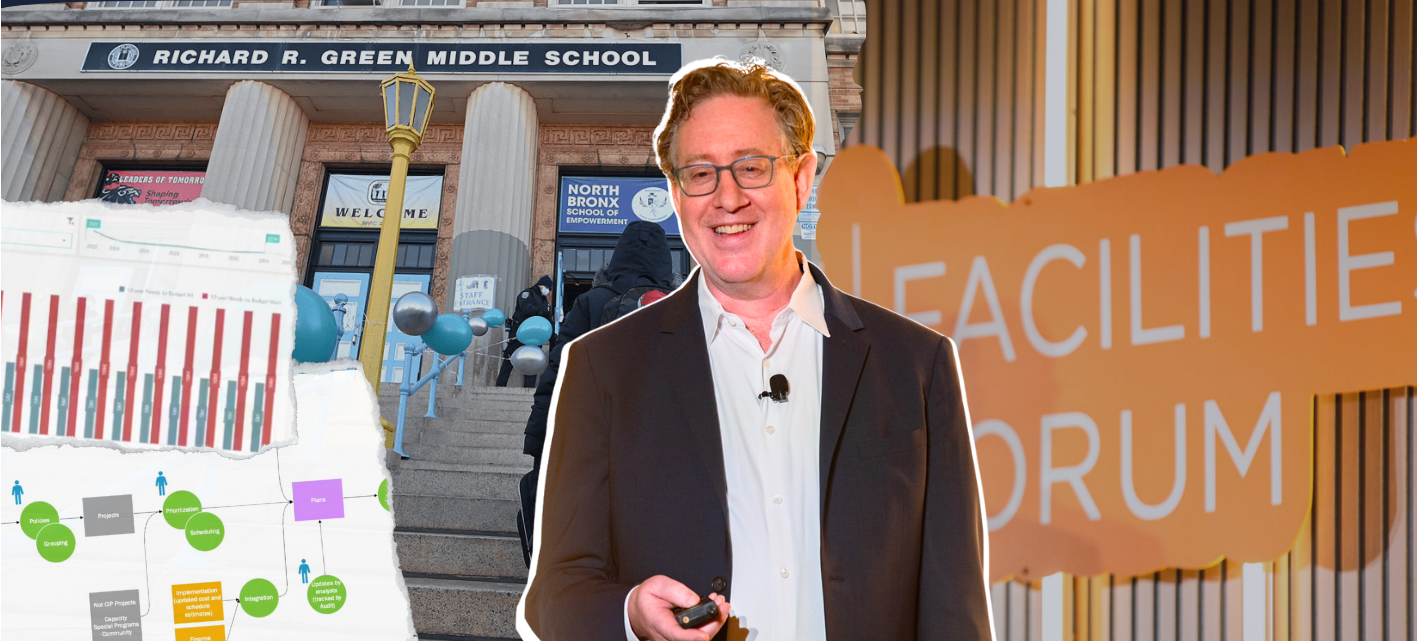

Comments